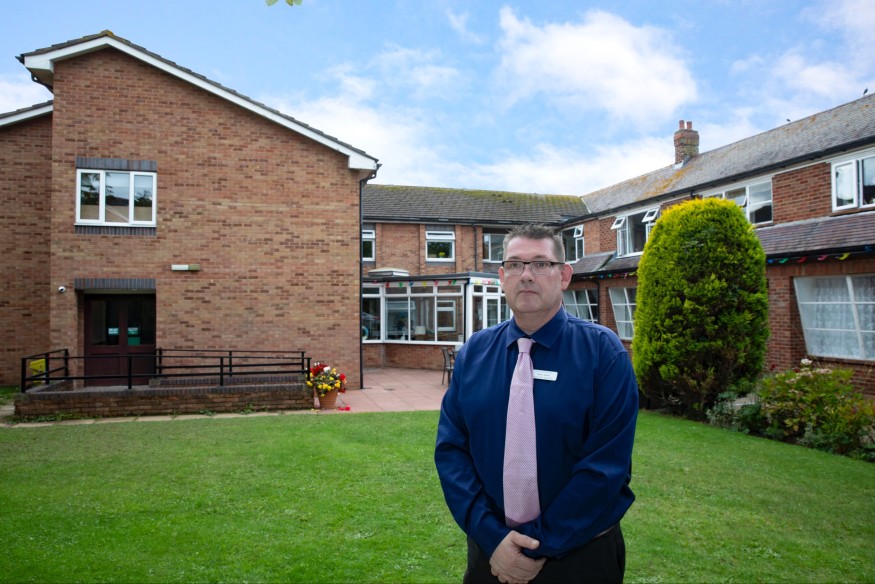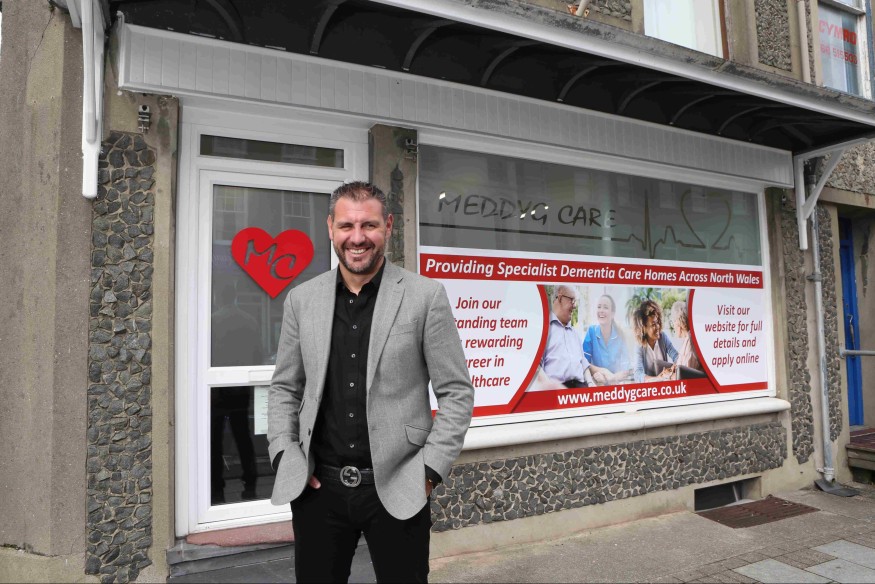
July 30, 2025 - 952 views
Support for 140 disabled people and the jobs of more than 400 staff in North Wales are under threat because of a social care funding crisis.
Anheddau, a charity that has provided a lifeline for clients in Gwynedd, Conwy, Anglesey, Denbighshire and Wrexham for three decades, is in a desperate fight for survival.
According to the organisation, the funding provided by the county councils which commission Anheddau’s services does not come close to covering the costs of supporting its clients who have extensive support needs.
Chief Executive Claire Higgins said that, for too long, Anheddau had subsidised these services and now an additional £400,000 has been added to the annual wage bill.
She explained: “From April this year, Chancellor Rachel Reeves raised the rate of National Insurance Contributions (NICs) which employers have to pay for employees from 13.8% to 15%.
“In addition, the Chancellor reduced the level at which employers have to start paying NICs from £9,000 to £5,100 per year.
“This financial burden coincided with the Welsh Government raising the Real Living Wage rate – the minimum which employers are expected to pay employees – to £12.60 an hour. It is a double whammy.
“We anticipated and planned for staff pay rises but the National Insurance contributions were a devastating blow.
“Finding £400.000 with little warning would be challenging for any business. For a small charity like Anheddau it is catastrophic.
The problems facing Anheddau, which has its main office in Bangor, mirror the plight of another charity organisation, Cymryd Rhan, which was forced to fold in March this year.
That organisation, based in Llanidloes provided support for about 2,000 people in Flintshire, Wrexham, Ceredigion, Merthyr and Powys. The Cymryd Rhan board concluded that closure was its only option because the sums didn’t add up.
Claire Higgins added: “We have been supporting people with autism, learning disabilities, mental health and other needs for more than 35 years.
“Anheddau has an established reputation for excellence in enabling people to live more independently and confidently in their communities.
“In the past it has been asked to take over the contracts of providers not meeting quality standards.
“However, if we cannot find a way through this financial crisis then it could spell disaster for the people we support and their families who depend on us on a daily basis.
“The fact is that if we were not providing this service then the local authority would have to do it themselves in-house or commission private providers.
“I see no benefit in either option since the cost of re-provision will increase and costs will be passed on to the wider population. The whole situation is hugely disappointing.
“There are no consequences for local authorities which do not honour the Welsh Government’s code of practice for funding the third sector which recognises the full cost of recovery is vital and must create a funding environment that promotes trust, transparency and mutual respect.
“Any increases in funding levels, due to the cost of living or inflation, should be applied fairly, equitably and as soon as possible. It is vital that the funding relationship allows an open and safe space for both funders and service providers to regularly review how the funded service is working.
“Anheddau’s reserve funds exist for emergencies. With hindsight, we should not have subsidised inadequately funded care packages. Although we have introduced efficiency measures over the last 12 months, we are still struggling to make ends meet. Without further financial support from the local authorities I fear Anheddau’s future.
“It is a misconception that not for profit services like Anheddau have huge reserves. The reality is that surplus money is reinvested back into service delivery. We hold sufficient reserves to meet our statutory requirements concerning redundancies.
“If the local authorities agreed to pay for the extra National Insurance Contributions, this would require each to increase Anheddau’s funding to 8% since our costs have risen by 11%.
“We have made a compelling case to them to do so but, so far, most of them have offered less than half of this.
“Denbighshire is reconsidering its original rise of only 4.3% and Ynys Môn has revised its offer from 4.2% to 5.8%, which is still too low.
“It is regrettable that local authorities are not working collaboratively with providers to promote the miracle of “ordinary lives” or even considering how well the outcomes for the people Anheddau supports are being achieved.”
Care Forum Wales (CFW) represents 450+ care homes, nursing homes and other independent health and social care providers across Wales, says that Anheddau’s plight is symptomatic of the problems facing the whole of the social care sector.
Chair Mario Kreft MBE warned: “Given what happened to Cymryd Rhan, this could be a case of history repeating itself unless councils can provide funding for a rescue package to save Anheddau.
“Council leaders appear to not understand the difficulties in social care.”
CFW Policy Advisor Thea Brain added: “Anheddau is a key player in terms of Welsh service provision, but it still needs local authorities to cover the National Insurance hike.”








